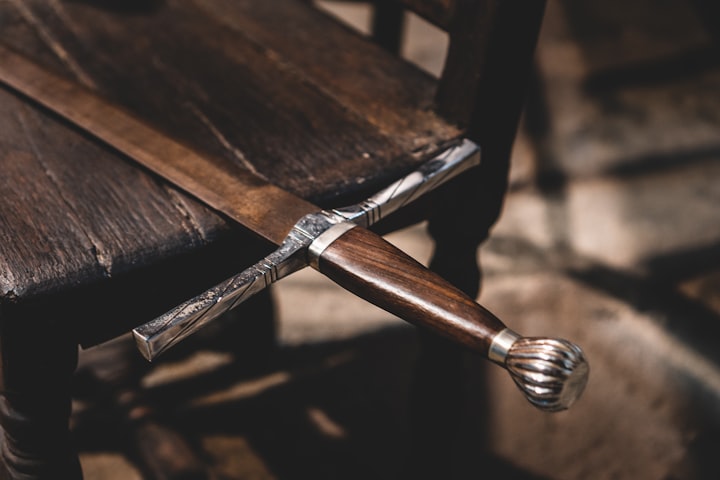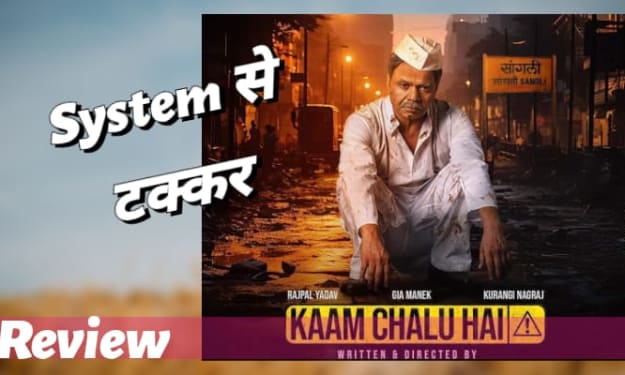Lack of independence and Ableism in Good Country People
Looking at the struggles of someone with a disability in Good Country People

The short story “Good Country People” by Flannery O’Connor follows Hulga Hopewell who is subject to a form of disrespect and discrimination called Ableism at the hands of her mother, Mrs. Freeman, and the bible salesman. Hulga is a capable young woman who went to college and earned a Ph.D. in philosophy. Hulga has an artificial leg that affects her daily life and a heart condition that affects her life span. These two combined keep her home with her mother and away from the life she wants to live. People with disabilities face microaggressions on the daily. Microaggressions are very commonly used and are not often recognized for what they are. What a person might mean as a compliment or trying to be helpful, may be offensive to a person with a disability. Ableism can be outright discrimination as well with verbal insults or attacks which Hulga unfortunately faces by the people that label themselves “good country people”. Ableism is abundant in the story and is a main driving point of the plot.
The term microaggression was coined by Harvard professor Chester M. Pierce in 1970. Pierce writes in Offensive Mechanisms, “offensive mechanisms are usually a micro-aggression as opposed to dramatic obvious macro-aggressions such as lynching” (266). While Pierce coined the term microaggression in terms of racism it has grown to be used when describing discrimination against all marginalized groups. Microaggressions are not immediately obvious as a sort of aggression because it is not immediate violence. In the study “The Experiences of Microaggressions against Women with Visible and Invisible Disabilities” from the California School of Professional Psychology and the Alliant International University there are a set of microaggressions that women with disabilities face daily. Some of these include helplessness, spread affect, infantilization, patronization and denial of privacy. Hulga faces quite a few of these during the novel and they are not immediately recognizable. It is common for mothers to treat their adult children like young children, but when their child has a disability it is a new form of disrespect. Hulga’s mother constantly puts Hulga down throughout the short story and cannot respect her adult decisions. However, as more characters are introduced the microaggressions turn into straight out ableism and aggression against her. The sinister outcomes from a supposed man of the Lord turns the “good country people” narrative on its head.
Immediately from the beginning of the story O’Connor explains Mrs. Hopewell’s perspective. Mrs. Hopewell does not respect the name that Hulga wishes to be called and defines Hulga by her disability. O’Connor writes, “Joy was her daughter, a large blonde girl who had an artificial leg. Mrs. Hopewell thought of her daughter as a child through she was thirty-two years old and highly educated” (178). The immediate description is negative. Large and artificial make Hulga seem undesirable in contrast to maybe describing her as educated and strong-willed. Mrs. Hopewell does not respect her daughter as an adult so everything that Hulga does becomes childish. This is a form of infantilization that the study earlier mentioned describes to the participants as, “You are treated like a child or a young person.” It is condescending to treat any adult like a child but when treating a person with a disability like a child there is an added layer of complexity and microaggression that has to be analyzed. It is a microaggression meant to put someone down and keep them down and an outcast. She is not allowed to be normal because no one sees her as normal. Is this person being treated like a child because they are acting like a child, because they are a person with a disability, or because of general disrespect? With any of these answers it should just be avoided in conversation.
Hulga does not play an adult role in the household and her mother still tries to do everything for her. “Women with disabilities are assumed to be unable to play the adult social role and to be the recipients of help” (Rhoda Olkin et. al) Mrs. Hopewell still gets up in the morning to light the gas heater for her daughter, tries to set her up on dates, and criticizes her clothes. These are examples of infantilization and helplessness. These are all things that Hulga should be able to do own her own but does not get that chance or has grown too complacent in the way her mother treats her. Hulga has done things that should classify her as an adult such as getting her PhD and changing her name legally, but because her mother does not respect how she made these choices, Hulga is still a helpless child in her eyes and always will be until Hulga dies. “Infantilization occurs when perpetrators treat targets like children or young people. Examples by three women included being patted on the head, being spoken to like a child, and the assumption that the woman needs someone to take care of her” (Rhoda Olkin et. al,19). Hulga has a voice and has tried standing up for herself. While her mother treats her awfully like a bratty child when Hulga had her own opinions, she stood up for herself with “If you want me, here I am –LIKE I AM” (181). Her standing up for herself means nothing to the mother if she still holds onto her disrespect for her own child.
Mrs. Hopewell took Hulga changing her name as a direct attack because of course Mrs. Hopewell gave her the name of Joy. Mrs. Hopewell makes the situation all about her instead of treating her daughter with respect for her decisions and instead “Mrs. Hopewell was certain that she (Hulga) had thought and thought until she had hit upon the ugliest name in any language” (181). Hulga did not tell her the reason because Mrs. Hopewell probably would not have believed her. Mrs. Hopewell does not respect her other decisions, so it was obvious she would not respect this one. When Hulga picked an outfit that was not desirable in her mother’s eyes, “Mrs. Hopewell thought it was idiotic and showed simply that she was still a child” (184). If everything that Hulga does is childish in her mother’s eyes she will always have to deal with no voice. Mrs. Hopewell’s attitude and insults towards her daughter do not foster a loving relationship but a power struggle. Her aggression towards her daughter is not “dramatic” as Pierce said but casual and rude. The buildup of years of this however makes this microaggression demeaning.
The reason behind Hulga’s name change is damaging but secret from her mother. Her mother would not have believed it because it came from Mrs. Freeman and “in the Freemans she had good country people” (180) and that is something idolized in the short story. Mrs. Freeman is another character to discriminate against Hulga with a sick obsession with her disabilities. O’Connor describes the events as “always obscure; a direct attack, a positive leer, blatant ugliness to her face—these never touched her. And without warning one day, she began calling her Hulga. She did not call her this in front of Mrs. Hopewell” (182). Hulga’s name change was a power move to take her power back. If she calls herself this name with pride, it can no longer work as an insult. Now, the reasons behind the insult are ableist and rooted in traditional beauty conventions. She was considered ugly because of her leg even though this does not affect the rest of her. Freeman’s problems with Hulga’s leg goes further than this. Freeman takes joy in hearing about Hulga’s accident as if it were something entertaining. “Mrs. Freeman could listen to it any time as if it had happened an hour ago” (183). Sure, some forms of entertainment involve violence but hearing the story of how a young girl losing her leg and wanting to hear it multiple times as a form of entertainment is a bit discerning.
Hulga’s disabilities have become a part of her identity both negatively and positively. Hulga has done everything she could to become her person. She went to college despite her mother’s condescending comments about her philosophy degree and how childish she is. She chose her name to show power over her disability and how people think of her. Her mother and the bible salesman both think of her as incapable and childish. Mrs. Hopewell “thought of her still as a child because it tore her heart to think instead of the poor stout girl in her thirties who had never danced a step or had any normal good times” (181). It is a common micro aggression to believe that people with disabilities cannot lead normal lives. It excludes them from the narrative of daily life. People do in fact lead normal lives, and it reflects what is normal for them.
Disabilities often come with a lot of unwanted pity. When the bible salesman was talking to Mrs. Hopewell, he feigns a heart condition to gain sympathy and pity from her. He capitalizes of the fact that people with disabilities are seen as helpless and in need of pity and extra love. It is an invisible disability that he can fake easily with no explanation. Mrs. Hopewell immediately thinks of her daughter with a similar condition and sets them up for a date even though Hulga is an atheist. This again shows that her mother does not respect her for her decisions. When alone with Hulga, he brings up that he may die also to lull her into a sense of camaraderie (195). Using a fake disability to gain pity is ableist in that is promotes a sense of helplessness which is a microaggression against people with disabilities. It promotes the idea that they are needy and cannot do things on their own. It is to assume that these people with disabilities are weak.
Manley Pointer is also a source of common microaggressions against people with disabilities. He may think it is harmless to ask: “Where does your wooden leg join on” (197)? This is intrusive and private. It is simply none of his business. “This type of microaggression occurs when personal information is demanded by the perpetrator, either explicitly or subtly” (Rhoda Olkin et. al, 16). She is rightly angry at the question and he attempts to remedy the situation with “I only meant you’re so brave and all” (197). This is another microaggression because it makes people stand out and get praised for nothing other than what is normal to them. “Patronization takes place when perpetrators are condescending or praise the PWD for doing everyday tasks” (Rhoda Olkin et. al,19). Often, people do not understand that this is rude when they say this to a person with a disability, but they are leading a life that is normal for them and are not wanting praise for just living.
Another form of microaggression that Hulga faces from Pointer is helplessness. He assumes that she cannot make her way into the loft in the barn because of her leg. She proves him wrong by climbing up to it and proving that she is not helpless (199). Hulga is headstrong and proves what she wants to but at the same time she is only doing these things to show she is capable, which she should not have to prove to have value in a relationship or society. Women are already provided a lesser role in society but adding a disability on top of womanhood creates an added layer of oppression. She is seen as weaker than weak. Pointer takes his ableism to a physical level. While in the barn when he is taking advantage of her and telling her that he loves her, he suddenly says, “Show me where your wooden leg joins on” (201) which once again is an invasion of privacy. When she obviously does not want to show it to him, he manipulates her into to thinking that she is the one in the wrong for wanting privacy for something she is sensitive about. Then he overplays her leg and makes it her whole identity because “it’s what makes you different. You ain’t like anybody else” (202). His microaggressions change from what could be identified as accidental and unknowing to manipulation and blatant ableism.
When she finally takes the leg off and shows him how to take it on and off to get him to stop asking he refuses to give her leg back saying, “Leave it off for a while. You got me instead” (O’Connor, 203). He renders her entirely helpless and in his care. “Denial of privacy also includes violation of physical boundaries. Participants listed examples of others touching either their equipment or their bodies” (Rhoda Olkin et. al, 17). He is gaining pleasure from her helplessness. Now, a common microaggression against women with disabilities is desexualization because they are no longer seen fit as a sexual partner for the relationship. Manley Pointer oversexualizes her and fetishizes her forced helplessness. As he pushes her down and assaults her, he keeps looking back at the leg. This shows that she is not the focus of his desire, but the artificial leg that was attached to her. Her helplessness is amplified by her artificial leg being just out of reach, leaving Hulga totally dependent on him. He takes advantage of her weak moment to exert power over her which is a more aggressive form of ableism than a microaggression. Pointer eventually steals her leg after several pleas from Hulga to return her leg and put it back on. He enjoys the power of stealing from people with disabilities, and possibly only women with disabilities. “I’ve gotten a lot of interesting things…One time I got a woman’s glass eye this way” (205). The Bible salesman is a repeat offender of stealing from people with disabilities and only tells Hulga of doing it to another woman. Women are easier to overpower than men but add a disability on top of that and they become an easy target.
The characters in this novel are not what they seem. Mrs. Hopewell sees herself as a loving mother who does everything for her daughter, but this turns into a form of disrespect and infantilization. Mrs. Freeman is seen as “good country people” because she is so helpful, but she has a sick obsession with how Hulga lost her leg and a hatred for her. The Bible salesman with a fake name steals Hulga’s leg to show his power over her and leave her stranded. Hulga sees herself as an educated woman but when it comes to the real world, she knows nothing, nit seeing the signs of the man about to attack her. It is a sort of secret within the community she lives in that the “good country people” are not actually good and she was not privilege to the knowledge.
Hulga has two types of disabilities. Her visible disability of the artificial leg affects her in her day to day life. Her heart condition affects her in her long-term life. Both affect her view on the world and how the world views her. Her mother sees her as a child not worthy of respect because Hulga’s heart condition keeps her home and makes her think more about life and philosophy. Her false leg makes her appear as a sort of conquest for the Bible salesman. He wants to make her feel even more helpless than she is and steals her leg and abandons her in the loft of a barn. Both are forms of ableism against her. While her mother is less physical and more verbal microaggressions, the Bible salesman delivers a physical and traumatizing form of ableism to Hulga. The direct attack makes her very aware of how helpless she is. She is helpless in her relationship with her mother and helpless against the man. Hulga is oppressed from the disability and female standpoints. Everyone in her life has an idea against her and this directly contrasts the “good country people” sentiment that the short story is based on. She is not mentally or physically safe in her own home or town.
Citations
Olkin, Rhoda, et al. “The Experiences of Microaggressions against Women with Visible and
Invisible Disabilities.” Journal of Social Issues, vol. 75, no. 3, Sept. 2019, pp.757-785. EBSCOhost, doi: 10.1111/josi12342
O'Connor, Flannery. “Good Country People.” A Good Man Is Hard to Find and Other Short Stories, Houghton Mifflin Harcourt , pp. 177–205.
Pierce, Chester M. “Offensive Mechanism.” Porter Sargent, 1970.
About the Creator
Miss Ghoul
Credentialed English teacher






Comments
There are no comments for this story
Be the first to respond and start the conversation.